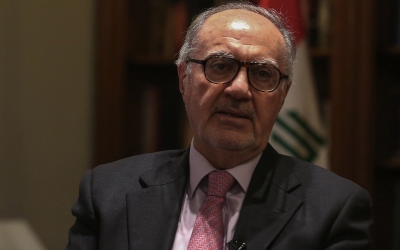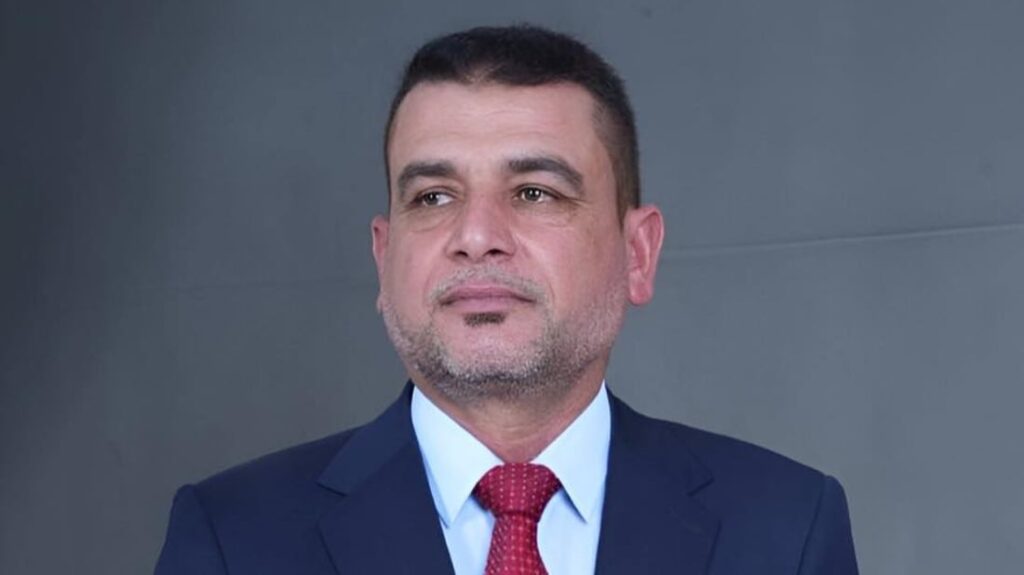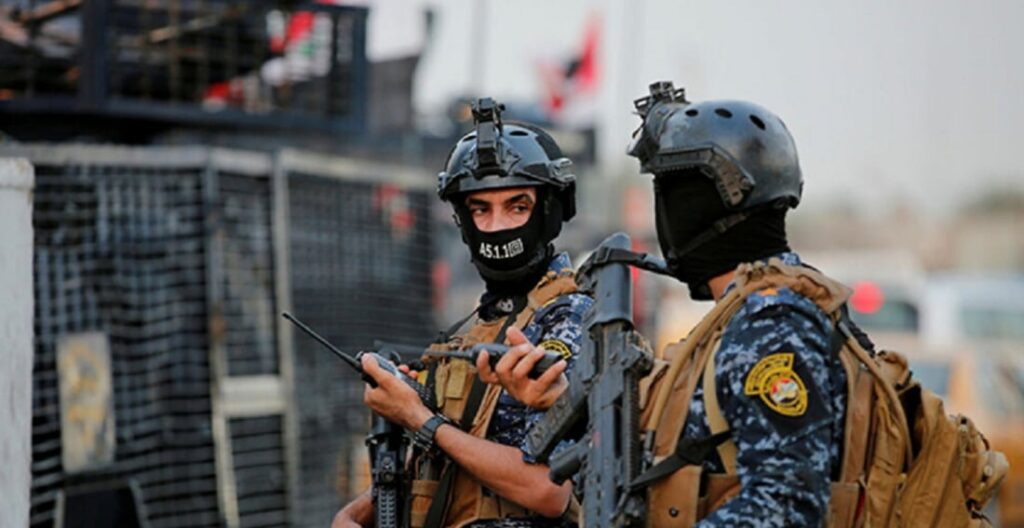Iraq's Central Bank under investigation for alleged money laundering

Iraq's Supreme Judicial Council is investigating the country's central bank and 13 private banks over alleged involvement in money laundering and terrorist financing operations, lawmakers and officials have told Middle East Eye.
In response to a parliamentary probe that ended last month, the council is understood to be investigating cases of customs and tax evasion and potential fraud in connection with the foreign exchange auction run by the Central Bank of Iraq (CBI) and the 13 private entities.
A statement issued by the Supreme Judicial Council on Thursday said that the Rusafa Investigation Court, which oversees cases of integrity, money laundering and economic crimes, had decided to "bring in" the directors of the banks "for violating the procedures of the Anti-Money Laundering and Terrorism Financing Law (No 39) of 2015".
Biden will not change policy towards Baghdad, Iraq's deputy prime minister says
Read More »The statement did not mention any details of the "violations", or the names of the banks involved. However, the Parliamentary Finance Committee revealed the existence of "suspicious operations" concerning officials in the CBI, who were reported to be aiming to exploit the foreign exchange auction.
MPs and bankers told Middle East Eye that the CBI, which does not deal with individuals, had become a hub for money laundering and currency smuggling due to weak supervisory measures.
To acquire US dollars, Iraq has an account with the Federal Reserve Bank of New York, which draws on Iraq's vast oil reserves. As the Baghdad government sells oil in US dollars, it uses the currency to buy Iraqi dinars from the CBI in order to finance salaries and public services.
The CBI then sells the dollars to private banks with a mark-up of 10 dinars on the dollar. Instead of bringing the dollars back into the country, the CBI is understood to deposit it in foreign banks, outside of the country, in exchange for invoices presented by the private banks to cover imported goods, lawmakers and bankers told MEE.
'False invoices for fake goods'
"The game is that these [private Iraqi] banks give false invoices for fake goods," Mohammed Saheb al-Darraji, a member of the Financial Parliamentary Committee and the chairman of the parliamentary probe, told MEE.
"In other words, there are no goods for the money deposited outside Iraq, and this is money laundering, as the source of this money is unknown or illegal.
"The CBI has to investigate the invoices and impose fines. But the CBI has stopped checking bills since 2016, under the pretext that they are not responsible for this matter," he added.
"The operation is deliberate. The CBI is ignoring this step due to bribes and political influence in order for the money laundering process to take place properly."
'There are no goods for the money deposited outside Iraq, and this is money laundering as the source of this money is unknown or illegal'
- Mohammed Saheb al-Darraji, chair of parliamentary probe
The investigative committee chaired by Darraji revealed that the period from 1 January to 1 September had seen the transfer of $27bn out of Iraq, while receiving no more than three percent of its customs revenues.
According to customs instructions, the merchant who imports goods from abroad must pay 15 percent of the value of the goods as customs, meaning that the annual customs revenues must reach 15 percent of the value of the sums transferred outside Iraq in dollars when it is transferred under the pretext of importing goods.
"The customs revenues that Iraq is supposed to get are 15 percent of the value of the amount that was transferred, that is, $4bn. The actual receipt is only three percent, or $418m," Darraji said.
"This means that the rate of waste reaches 12 percent. Where did this go?"
Until last week, the CBI used to buy $1 at 1,182 dinars from the Iraqi government and then sell it to private banks and financial transfer offices for 1,190 dinars.
Lawmakers and bankers told MEE that the private banks would then sell $1 to the final beneficiary at a price of 1,250 dinars, a difference of up to 60 dinars per dollar.
"The daily profit from this operation reaches $11m, while the monthly profit reaches $220m, while the annual profit reaches $2.64bn," Sabah al-Saaidi, a member of the Parliamentary Integrity Committee, said in a televised parliament session last month.
"The only beneficiary of this operation is a group of private banks. Neither the government nor the citizen are beneficiaries of this process."
Panic as prices rise
Most Iraqi political forces depend on illegal sources of funding, including through money laundering, commissions, extortion and oil and drug smuggling, lawmakers said.
There are at least 52 private banks in the country, according to the public records of the CBI, and most are either used or owned by political forces to participate in the foreign currency auction and conceal their funding sources, Parliamentary Financial Committee investigations revealed.
In an attempt to curb the smuggling of the dollar and reduce the annual budget deficit for 2021 - around $43bn - the Iraqi Ministry of Finance raised the dollar exchange rate to 1,450 dinars on Saturday, which immediately caused the prices of goods to rise sharply, causing panic among citizens.
Iraq hurtling towards a financial crisis that could leave millions unpaid
Read More »While the government has defended the decision to devalue the dinar, which means it will get more Iraqi dinars from the central bank, the move threatens to spark popular demonstrations across the country.
A key adviser to Iraqi Prime Minister Mustafa al-Kadhimi told MEE that devaluation, tax increases and austerity measures were the "only option" to address the liquidity crisis after proposals to reduce public salaries had been rejected.
"The devaluation is a response to the urgent need to stop the collapse of the Iraqi economy, reduce the budget deficit and stop the bleeding of foreign currency - and this [is in response] to pressure from the World Bank and the International Monetary Fund," the adviser said.
"Iranian and Turkish goods have been invading Iraqi markets, and the competing power of Iraqi goods... is almost non-existent, with complete reliance on oil sales. All these factors have forced the government to search for other financial resources to reduce the budget deficit.
"The country is heading for a real disaster and Kadhimi is trying to stop the bleeding with shocking measures," the adviser added.




